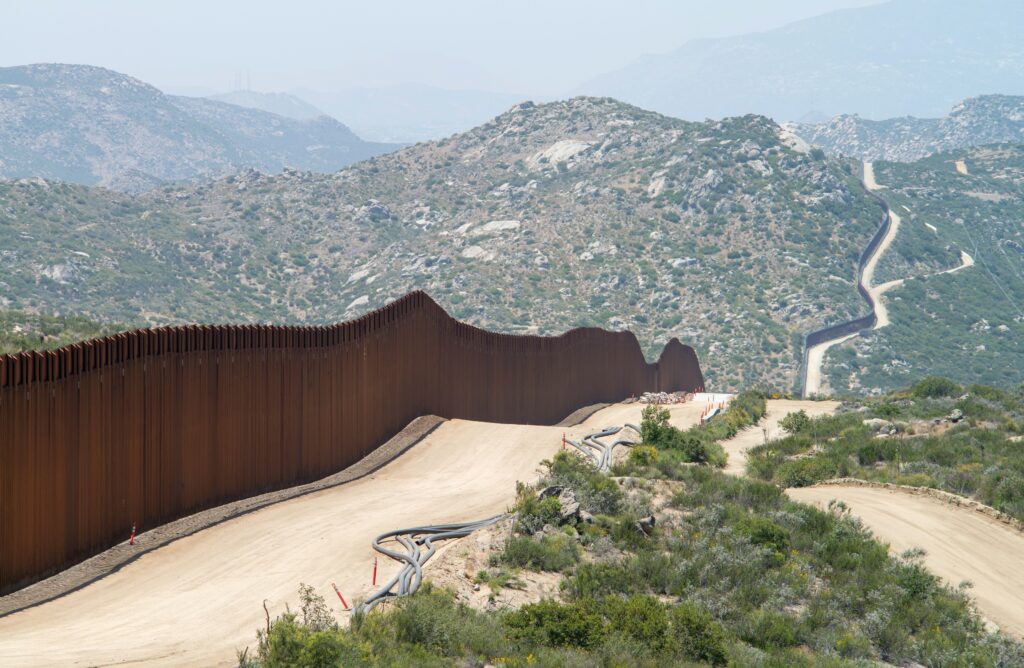In politics, there are few issues as contentious and consequential as immigration. Immigration policy and its impact on the economy are at the center of attention as nations grapple with the challenges and opportunities of migration. The complicated relationship between immigration and economic growth has been intensely scrutinised, with proponents and critics holding differing views.
In examining this complex issue, we will look at how immigration policy can affect an economy in various ways. The impact of immigration on a country’s economic landscape cannot be overstated: It ranges from spurring innovation and addressing gaps in the labor market to debates over wages and social cohesion. While the economic impact may vary by region and timeframe, the fundamental question remains: How do immigration policies affect the economy?
Join us as we explore the nuanced terrain of immigration policy and its profound impact on economic prosperity. Are strict immigration controls necessary to protect domestic labor markets, or do more open policies promote dynamic growth and cultural diversity? Join us as we unravel the intricacies of the compelling story of immigration policy’s impact on the economy.
Definition of Immigration Policy
Immigration policy encompasses the legal framework governing foreign persons’ entry and residence in a country, including those seeking permanent residency. These policies outline the procedures and requirements for entry into the country, including entry permits and residence rights that allow individuals to participate in the labor market. They also address the rights of asylum seekers and refugees and the family reunification process, in which immigration officials review individual applications on a case-by-case basis. In addition, immigration policies describe the path to full citizenship, known as naturalization, which may also apply to immediate family members. These policies often reflect humanitarian principles and recognize individual rights, while some countries also grant citizenship based on jus sanguinis, citizenship by descent.

Importance of Examining the Impact of Immigration Policy on the Economy
Understanding the relationship between immigration policy and the economy is critical. Economic consequences depend on factors such as the type and number of immigrants admitted and supporting policies and regulations.
Immigration can have positive and negative effects on the economy. Immigrants who contribute to the labor force, start businesses, and increase consumer spending can spur economic growth and meet employer demands. However, excessive inflows can strain public services, education, and health care, and create problems in the labor market.
The impact of immigration policy on the economy also depends on the reception and integration of immigrants. Policies that promote acceptance and support create positive relationships that foster cooperation and economic growth. Conversely, xenophobia or strict enforcement impede economic activity.
Visa duration and flexibility influence the economic impact of immigration. Longer-term visas allow for sustained economic contributions, while short-term visas can limit participation.
Language and cultural training, job preparation courses, and accessible housing and health care promote immigrant integration, create opportunities, and strengthen the economy.
Law enforcement is critical. Targeted policies reduce illegal immigration and increase contributions through legal channels. Rigorous enforcement instills fear and discourages economic participation. Well-designed policies can have a significant impact on a country’s economic success.
How can immigration policy be designed to maximize economic benefits while addressing challenges? Join us as we decipher the impact of immigration policy on economic prosperity.
The Relationship between Immigration Policy and the Labour Market
The relationship between immigration policy and the labor market is complex and influenced by factors such as immigrant skills, economic conditions, and government policies.
In 2006, the U.S. government implemented stricter immigration enforcement measures, including increased border security and workplace raids, to reduce unauthorized immigration. This resulted in many low-skilled immigrants leaving the country or going underground, leading to labor shortages in sectors such as agriculture and construction.
To address the labor shortage, employers had to improve wages and working conditions to attract natives and legal immigrants. This created better opportunities and wages for native-born workers, especially in low-skilled occupations that previously competed with low-wage immigrants.
The H-1B visa program allows U.S. employers to temporarily hire highly skilled foreign workers in specialized fields such as technology, engineering, and science. Originally intended to address a shortage of skilled workers, the program was expanded and made more flexible to facilitate the entry of highly skilled foreign workers. This has increased the supply of skilled labor, particularly in the technology sector, and thus stimulated innovation and economic growth.
However, increased competition from highly skilled foreign workers has reduced wages for domestic workers in certain industries, such as computer programming. Employers have been able to hire highly skilled workers at lower wages than domestic workers.
Historical Context of Immigration Policy and the Economy
The Impact of Historical Immigration Policies on the Economy
Modern immigration policy emerged in response to the French Revolution and the need to create citizenship rights. It focused on birthright citizenship (jus solis) or citizenship acquired by descent (jus sanguinis). The Industrial Revolution led to a labor shortage, as a result of which labor recruitment programs and more flexible immigration policies were introduced in European countries.
After World War II II and decolonization, there was increased migration from poorer to richer countries. However, the economic crisis of the 1970s caused countries to suspend their foreign labor recruitment policies. These historical events demonstrate the dynamic relationship between immigration policy and the labor market, shaped by broader social and economic factors.
Current State of Immigration Policy and its Impact on the Economy
The Effect of Immigration Policy on Specific Industries and Sectors
Immigration policy has had a notable effect on the healthcare sector in the United States. Policies allowing highly skilled foreign medical professionals, like physicians and nurses, have alleviated workforce shortages and enhanced healthcare accessibility, particularly in underserved areas.
Conversely, stricter immigration measures and visa restrictions have created obstacles for foreign-born healthcare workers, leading to a decline in lower-skilled positions such as home health aides and personal care workers. This strains an already burdened healthcare system.
The Deferred Action for Childhood Arrivals (DACA) policy, established in 2012, provides temporary protection and work authorization to individuals brought to the US as children without legal status. This policy has profoundly impacted the transportation industry, with DACA recipients contributing as truck and taxi drivers, bus operators, and airport employees. They have filled vital roles and made valuable contributions to the economy. However, the future of DACA remains uncertain, and any policy changes could significantly impact the transportation sector and its workforce.
Proposed Solutions for Impactful Immigration Policies
Streamlining Legal Immigration Processes
Simplifying legal immigration processes facilitates the efficient entry of highly skilled workers, promoting economic growth, innovation, and competitiveness.
Providing a Pathway to Citizenship for Undocumented Immigrants
A pathway to citizenship allows undocumented immigrants to contribute to the economy fully, increasing economic growth, tax revenue, and workforce productivity while providing stability and security.
Increasing Investment in Education and Training Programs
Investments in education and training programs provide both native-born and immigrant workers with the skills needed to succeed in the modern economy, improving competitiveness, productivity, and long-term economic growth.
Implementing Targeted Immigration Policies aimed at Specific Economic Sectors
Implementing targeted immigration policies for specific sectors of the economy meets industry-specific workforce needs, bridges skills gaps, promotes economic growth, and maintains competitiveness.
Offering Incentives for businesses to Invest in their Workforce and Training Programs
Incentivising businesses to invest in their workforce and training programs improves skills and productivity, leading to greater competitiveness, higher wages, and improved economic growth.
Encouraging International Cooperation and Coordination on Immigration and Labor Market Issue
Promoting international cooperation and coordination on immigration and labor market issues addresses global labor market trends and ensures that immigration policies support economic growth and development. This promotes a fair and balanced approach that benefits workers and employers.







































